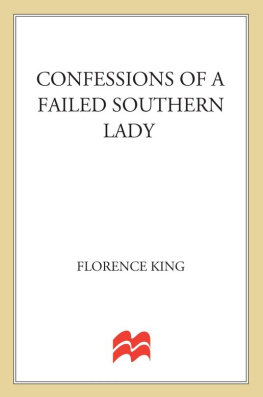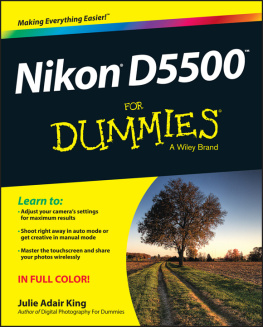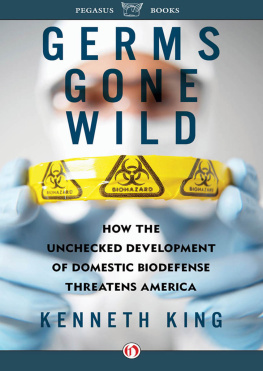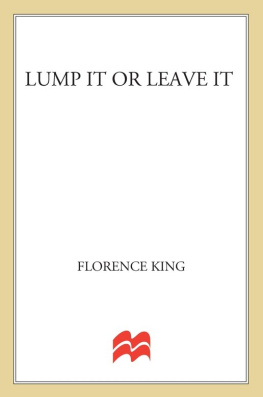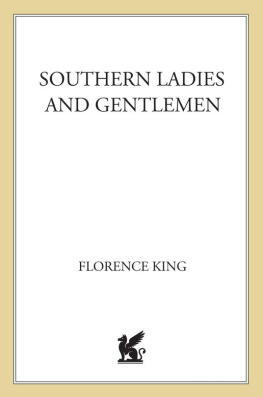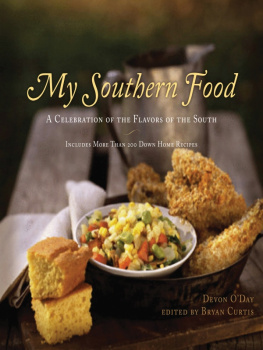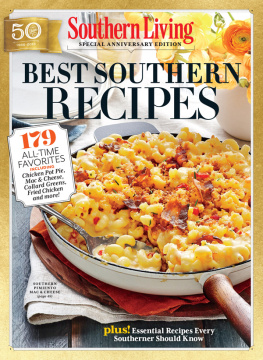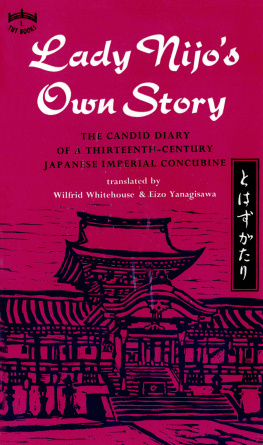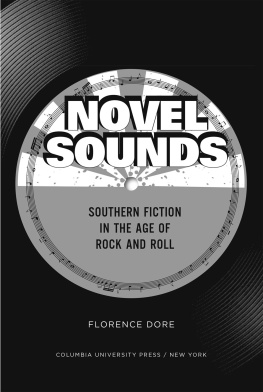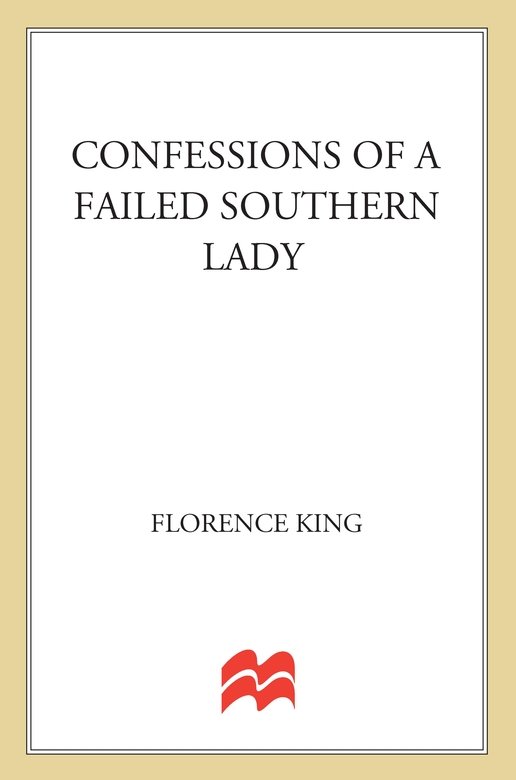M Y ladylike adventures have taken me from Seattle to Paris, but last year I was carried back to Tidewater Virginia, which my ancestors helped to unsettle.
A romantic version of my address can be found on the first page of Thackerays Henry Esmond, which kicks off with a description of the Esmond familys royal grant in Westmoreland County between the Rappahannock and Potomac rivers. It was the only book I ever read that Granny did not tell me to get my nose out of. Though she hated bluestockingsher name for female intellectuals, who could never be ladiesshe actually read a few pages of it herself, muttering, Esmond Esmond do I know any Esmonds?
Being an Englishman, my father was singularly unimpressed by Grannys ancestors, so I knew he was getting ready to enjoy himself. I met his dancing eyes and read the message in them: Dont tell her its a novel. We let her go on until she was saying, It was Samuel Esmond who married my great-great-grandfathers half-sister. Preening herself, she added, Our royal grant was next to theirs.
I had heard about our royal grant many times. Granny was always careful to keep it in the same place, but the grantor changed depending upon what monarchicalname happened to pop into her head while she was launched on her pipe dreams. Her boasts were believable as long as she stuck to kings and queens from the pre-1776 era, but when she claimed a royal grant from William IV, my father started laughing so hard he had to leave the table.
William the Fourth reigned from 1830 to 1837, Granny, I said.
Be that as it may, she replied serenely.
Our ancestors did arrive very early in Virginia1672but they were not the kind of people Granny said they were, and they rose very little in the social scale in subsequent generations. I would not be at all surprised if I turned out to be a direct descendant of the Spotsylvania hatchetman who relieved Kunta Kinte of his foot.
I began life by letting down the side. Being the first person in my family who was not born in Virginia made the radio quiz shows of the forties a painful experience for me. Crouching like Cinderella beside the huge Philco console, I listened to the wild applause that vibrated through its brocaded sound vents when a contestant named Texas as his home state. Texas always got the biggest hand, but any state seemed to arouse the audience; even Rhode Island got a big sympathy vote.
I looked up at the two adults on the sofa. Granny was crocheting and Mama was reading the Times-Herald sports page and chainsmoking Luckies. They looked as if nothing was wrong, and of course, nothing was wrong for them. They had a home state; I did not.
What would I say? I asked.
About what? Mama muttered abstractedly.
If I was on the show and they asked me my home state?
Youre a Virginian, Granny said with a sublime smile. Everyone is.
But I wasnt born there. Suppose they asked me where I was born?
Mama lit a new cigarette from the butt in her yellowed fingers.
Well, tell em the truth, whats wrong with that?
Because they wouldnt clap. They only clap for states.
If the District isnt good enough for em, tell em to take their sixty-four dollars and shove it.
Oh, Louise! Granny cried. Thats no expression to use in front of the child! How do you expect her to grow up to be a lady if you cuss like a trooper?
Oh, shit.
I dont have a home state, I mourned.
Oh, for Gods sake! Tell em youre from Maryland, then. Washingtons really in Maryland anyhow. Washingtonians used to have to put both District and Maryland tags on their cars. Tell em that.
Like charity, schizophrenia begins at home. Washington would really have been in Virginia, too, if Virginia had not been what Mama called a bunch of goddamn Indian-givers. In 1789, the Old Dominion donated a section of Fairfax County to make up the South Bank of the District of Columbia; but angered when all the important government buildings were erected on the Maryland side, they took it back. The disputed portion was called Alexandria County until 1920, when it was renamed Arlington County. It was here that Mama was born in 1908.
Arlington is now part of the polyglot Yankee suburb known tactfully as Northern Virginia, but until the end of World War II there was no such place. It was simply part of Virginia, a rural area dotted with small villages whose names survive today as shopping malls or beltline exits: Rosslyn, Clarendon, Ballston, Cherrydale, TysonsCorner, and Baileys Crossroads. The people who lived there were not commuters in the modern sense; they might, like my grandfather, have worked for the guvment because the government happened to be close by, but otherwise they looked on the Nations Capital as a shopping town, the way people in northern Mississippi regard Memphis.
Mama grew up in Ballston on a dirt road in a white frame house bordered by a field of wild strawberries and enhanced by a lacy gazebo in the backyard. She had an older brother, Botetourt (pronounced Bottatot), named for the Virginia Royal Governor from whom Granny claimed descent. Granny, of course, actually called him Botetourt; Mama called him Gottapot and everyone else called him Bud. After my grandfather died in 1921, the worthy Botetourt married and moved to Falls Church, leaving Granny and Mama to fight out alone what was by then a hopeless battle over Mamas image.
She was not pretty but our Indian blood had come out in her and given her face a noble cast. She looked like a blond Duchess of Windsor; the same winglike cheekbones, big tense jaw, and thin clamped mouth. Her stark features and big-boned bonyness were made for devastating compensatory chic, but unlike the Duchess, Mama was not interested in creating illusions.
She started smoking cornsilk at eight. At twelve she taught herself to drive by stealing Botetourts car and driving all the way to Fairfax Courthouse before they caught her. At fifteen she quit school, applied for a work permit, and got a job as a telephone operator at the Clarendon exchange. With her first pay she bought an infielders glove and joined the telephone companys softball team as shortstop. Granny tried to put a good face on matters by attending a few games so people would think she approved of girlish sport, but the day she noticed a lump in Mamas cheek and realized it wastobacco, she had to be helped from the bleachers and escorted home.
Scarcely a day passed without an Oh, LouiseOh, shit argument. The worst crisis erupted over the gazebo. Granny kept telling Mama to use it, so Mama hung a punching bag from the middle of the roof and got one of her good ole boy pals to give her boxing lessons. Needless to say, men felt comfortable around her and frequently took her to ball games and races, but no matter how many times Granny told her to keep her dates waiting, my competitive mother would dress early, lie in wait behind the curtains watching for her escort, and then throw open the door before the first ring and say, I beat you!
Knowing that she could do nothing with Mama, Granny looked around the family for a malleable girl who would heed her advice, a surrogate daughter cast in the traditional mold, someone delicate and fragile in both body and spirit, a true exemplar of Southern womanhood. Someone, in other words, either sick or crazy.
One of the joys of growing up Southern is listening to women argue about whether nervous breakdowns are more feminine than female trouble, or vice versa. They never put it quite that bluntly, but it is precisely what they are arguing about. These two afflictions are the sine qua non of female identity and the Southern woman is not happy unless her family history manifests one or the other. Her preference is dictated by her own personality and physical type. Well-upholstered energetic clubwomen usually opt for female trouble, while languid fine-drawn aristocrats choose nervous breakdowns.

